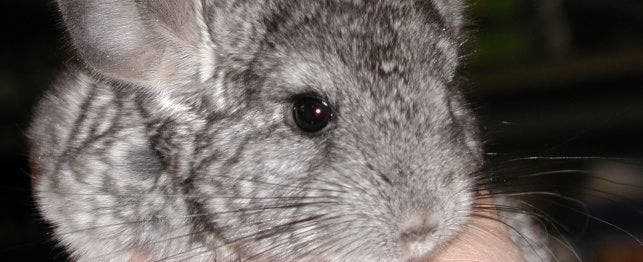
Buying a Chinchilla
The first question to ask when buying a chinchilla is not what it costs, but rather, “What are the guarantees?” The next question is, “What are the chinchilla’s aggressive tendencies?”
The guarantees relate to physical and behavioral issues that can be handed down from parent to young. Laurie Schmelzle of Underhill Chinchillas, a chinchilla buyer’s agent who sells breed stock all over the world, recommends seeking a five-year guarantee against malocclusion. Malocclusion is a misalignment of the jaws that will be fatal for chinchillas.
The second guarantee to ask for relates to whether the animal or his parents chewed their fur. While this habit can sometimes come from stress, most of the time the distressing condition is passed from parent to young.
Temperament
Temperament is another major concern. Once again, while environment may cause a chinchilla to be aggressive, aggressiveness appears to be passed on from one generation to the next. Breeders who have not culled aggressive animals from their breed stock will be breeding a new generation of chinchillas that are not petworthy.
Cost
When you do finally ask about the cost of a chinchilla, keep in mind that a good pet quality standard chinchilla should not sell for more than $100. A rarer variety will raise the price with black, white and beige animals going for around $150; ebony animals for $175; and super-violet or sapphire for $200. These prices are for pet quality animals.
While pet shops may meet these prices, without the above guarantees you hazard getting an animal that may have been culled from a breeder’s stock, a rancher’s unwanted leftovers or from an inexperienced breeder.
Since most chinchillas are still raised for pelts, there are no shows geared to pet owners. If you can find a breeder or rancher you may be in luck. Some breeders will sell year-old or two-year-old chinchillas that they’ve already shown, sterile chinchillas that can’t be bred, or standard chinchillas that breeders of mutations won’t use for brood stock. All of these, Ms. Schmelzle points out, can make wonderful pets. Ranchers are especially careful with maintaining the quality of their animals. Older chinchillas are often the best to take, especially if they’re used to being handled.
Buy A Pair
She also recommends that you buy a pair, rather than just one. A pair of females bought at the same time will usually get along. A pair of males, if they’re littermates and no female is introduced, will also get along.
Now you can take a good look at the animals themselves: Make sure they don’t have watery eyes or drooling mouths. Make certain their fur has not been chewed and there are no pulled areas. If you are buying by mail order or through the Internet, get references from others to whom the breeder has shipped animals.